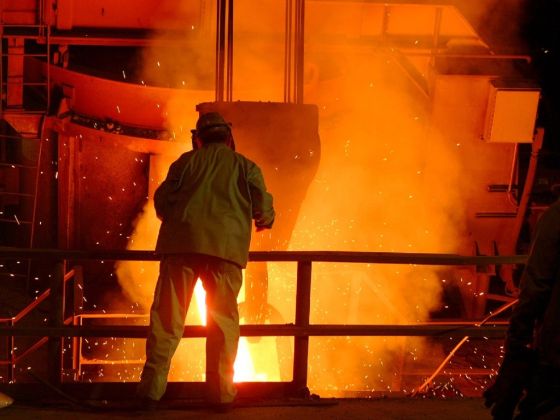
The European Steel Association (EUROFER) has backed the ambition of the European Commission’s ‘European Green Deal’ for the EU, citing the support for zero-carbon steelmaking processes and on carbon border adjustment.
However the association did emphasise the massive investments required and warned against sacrificing European industry in order to decarbonise.
The Green Deal tapping into the international drive to increase sustainability and cut emissions.
“We welcome the aims of the European Green Deal. In charting a series of sectoral and specific policy plans, it is clear policymakers take seriously the need to transition to a carbon-neutral future with industry, rather than without it”, said Axel Eggert, EUROFER Director General.
“It is now of utmost importance to develop a regulatory framework that creates markets for CO2-neutral products: these have significantly higher production costs, for example because of the use of highly-priced hydrogen instead of coking coal in the steelmaking process. Policymakers must establish – jointly with us – how ‘green’ steel can compete against carbon-intense, low-cost steel imports that have a significantly higher CO2 footprint than EU-made steel.”
"First carbon-neutral continent by 2050"
The EUROFER spokesman continued: “The EU seeks to make Europe the first carbon-neutral continent by 2050, which is a high ambition. The steel industry is already working on a range of low- and carbon-neutral solutions that could lead to reductions in CO2 emissions from steelmaking by up to 95% in 2050 under an optimum regulatory framework. It is why a partnership on clean steel – as well as other means to ensure the steel industry remains competitive even as it becomes carbon-lean – is so essential.”
“The European steel industry supports the overall aims, but reminds policymakers that the investment and regulatory requirements will be massive. If Europe decarbonises by sacrificing European industry – thereby exporting our CO2 emissions to other regions – then that will not count as a victory but rather a defeat in the struggle against global climate change.”
Functional carbon border adjustment mechanism
In connection with the development of zero-carbon steel, EUROFER has advocated for a functional carbon border adjustment mechanism, which does feature in the Green Deal. EUROFER's keen focus on protecting European industry saw it note that the mechanism must serve as an incentive for foreign producers to reduce their emissions: "Currently, third country producers have little incentive to follow the carbon reduction path that EU producers are already on."
Eggert said: “The border adjustment must be implemented as soon as possible as a transitional addition to existing tools, such as free allocation. This is because EU steelmakers already have a competitive disadvantage compared to third country producers, even with free allocation as it is today. A regulatory framework that builds on the carbon footprint through the value chain must be established. As a transitional measure, a carbon border adjustment would support EU producers’ CO2 reduction efforts whilst incentivising trade partners to do the same.”
“The EU’s steel industry will be following this dossier very closely, and stand ready to work with policymakers to offer recommendations and solutions to help make the Green Deal work for all of European industry and society. If the right conditions are in place as a result of the Green Deal, the EU steel industry could become the flagship for climate policy – able to roll out the first industrial-scale demonstrators of its low-carbon technologies by as early as 2025.”